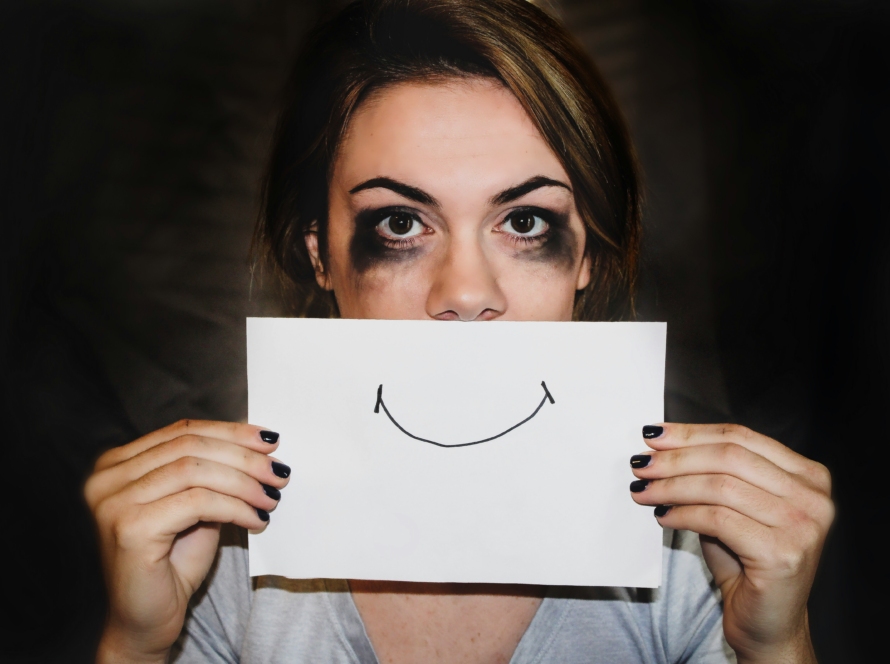What is Trauma?
Something that happened to you that still haunts you today. And if it doesn’t still haunt you, it sure did for a long time.
Beth Filson, Lived Experience
Trauma refers to an exceedingly distressing, adverse, or profoundly intense incident that surpasses an individual’s capacity to cope. One may experience trauma when such overpowering occurrences transpire either in one’s own direct experiences or when they observe or learn about them unfolding in the lives of others.
A traumatic incident is characterized by its uncommon and unforeseen nature, inducing deep distress in a person. This may include occurrences like fires, accidents, thefts, assaults, or being a witness to a death. It has the potential to span a broad spectrum, ranging from major disasters involving numerous individuals to intimate incidents involving oneself, one’s friends, or family members.
The impact of a traumatic occurrence on a person is not determined by its magnitude, but rather by their interpretation of the event and its significance in their life. This response is highly individualistic, as people exhibit diverse reactions to traumatic incidents.
Reactions to Trauma

There are three primary ways that people can react to trauma.
- Flashbacks: Re-experiencing the trauma in your mind
- Dissociation: Feeling numb, spaced out or detached from one’s body or as though the world around one is unreal
- Panic Attacks: An exaggeration of one’s body’s response to danger, stress or excitement
Reactions to trauma can affect the way we feel, the way our body works, the way we behave, and the way we think.
Why Do People React So Strongly to Trauma?
People react strongly to trauma due to the profound impact it has on their psychological and physiological well-being. Trauma disrupts the individual’s sense of safety, predictability, and control, often triggering a cascade of emotional and physiological responses. It is deeply distressing and can evoke a wide range of intense emotions such as fear, anger, sadness, and helplessness. The emotional toll of trauma can be overwhelming and difficult to manage.
Traumatic events activate the body’s primal survival response, known as the “fight or flight” response. This results in the release of stress hormones like adrenaline and cortisol, which prepare the body to confront or flee from danger. These physiological changes can lead to heightened arousal, rapid heartbeat, and a sense of hyper-vigilance. Individuals with a history of previous trauma, mental health issues, or certain personality traits may be more prone to reacting strongly to new traumatic events.
The strong reactions to trauma thus arise from a complex interplay of physiological, psychological, and emotional factors that collectively contribute to the significant impact trauma has on an individual’s well-being.
Can Trauma Cause Mental Health Problems?
Trauma has the capacity to directly trigger mental health issues or amplify your susceptibility to developing them. It stands as a conceivable catalyst for various mental health problems, making it challenging to discern which specific issues stem from traumatic experiences.
Additionally, certain disorders have also been recognised to manifest directly due to trauma too, including post-traumatic stress disorder (PTSD) and complex post-traumatic stress disorder (complex PTSD).
How you’re affected by trauma may depend on other things too, such as previous experiences of trauma, being harmed by those close to you, other worries or stresses at the time or later on, and whether anyone supported you or reached out to help since then.
Ways to Cope With Trauma
Coping with trauma can be a challenging process, but there are several strategies that can help individuals navigate their emotions and heal over time. Here are some effective ways to cope with trauma:
- Practice Self-Care: Engage in activities that promote your physical, emotional, and mental well-being. This can include exercise, proper nutrition, sufficient sleep, and relaxation techniques like deep breathing or meditation.
- Build Supportive Relationships: Connect with friends, family, or support groups who can offer understanding and empathy. Sharing your experience with trusted individuals can help alleviate feelings of isolation.
- Express Your Feelings: Find healthy ways to express your emotions. Journaling, creative arts, or talking openly with someone you trust can allow you to release pent-up feelings and gain insight into your emotions.
- Engage in Positive Activities: Participate in activities that bring you joy, purpose, and a sense of accomplishment. Engaging in things you love can help counterbalance the negative effects of trauma.
- Healthy Lifestyle Choices: Avoid using substances like alcohol or drugs to cope. Instead, make healthy choices that promote your well-being.
- Educate Yourself: Learn about the effects of trauma and how it can impact your thoughts, emotions, and behaviours. Understanding your reactions can make the healing process more manageable.
Healing from trauma takes time. Be patient with yourself and recognize that progress may not always be linear. It’s important to prioritise self-care, patience, and self-compassion as you work towards coping with and healing from trauma.

When to Seek Professional Help
While reactions to trauma usually fade with time, you may need to ask for more help if you continue to experience the following after a few months:
- The event occupies a prominent position in your thoughts
- You have intense feelings of anger
- You experience sensations of tension, fatigue, confusion or restlessness
- Your performance at work shows a marked decline
- You encounter nightmares, flashbacks, panic episodes, or disruptions in sleep
- Those who are close to you observe changes in your personality
- You feel you are distancing yourself from work or individuals associated with it
- Your relationships undergo significant strain, or there is a decline in your sexual drive
- Your eating patterns have become erratic
- You have noticed an uptick in your smoking or drinking habits
- You find you are depending on medication to maintain a sense of calmness or achieve sleep.
If the above symptoms carry on for more than a few months or worsen, you may need to contact your GP or a therapist, counsellor, or mental health professional experienced in trauma therapy. They can provide guidance and specialised techniques to help you process your feelings and develop coping skills.
To learn more about traumatic events and how these may lead to mental health problems, reach out to us via info@nnpsychology.co.uk or call us on 07341193858
Remember, there is no right or wrong way to feel after experiencing a traumatic event. Everyone reacts in their own way and can be helped and supported throughout their journey to healing!
Further Reading:
https://www.tewv.nhs.uk/about-your-care/conditions/trauma/



